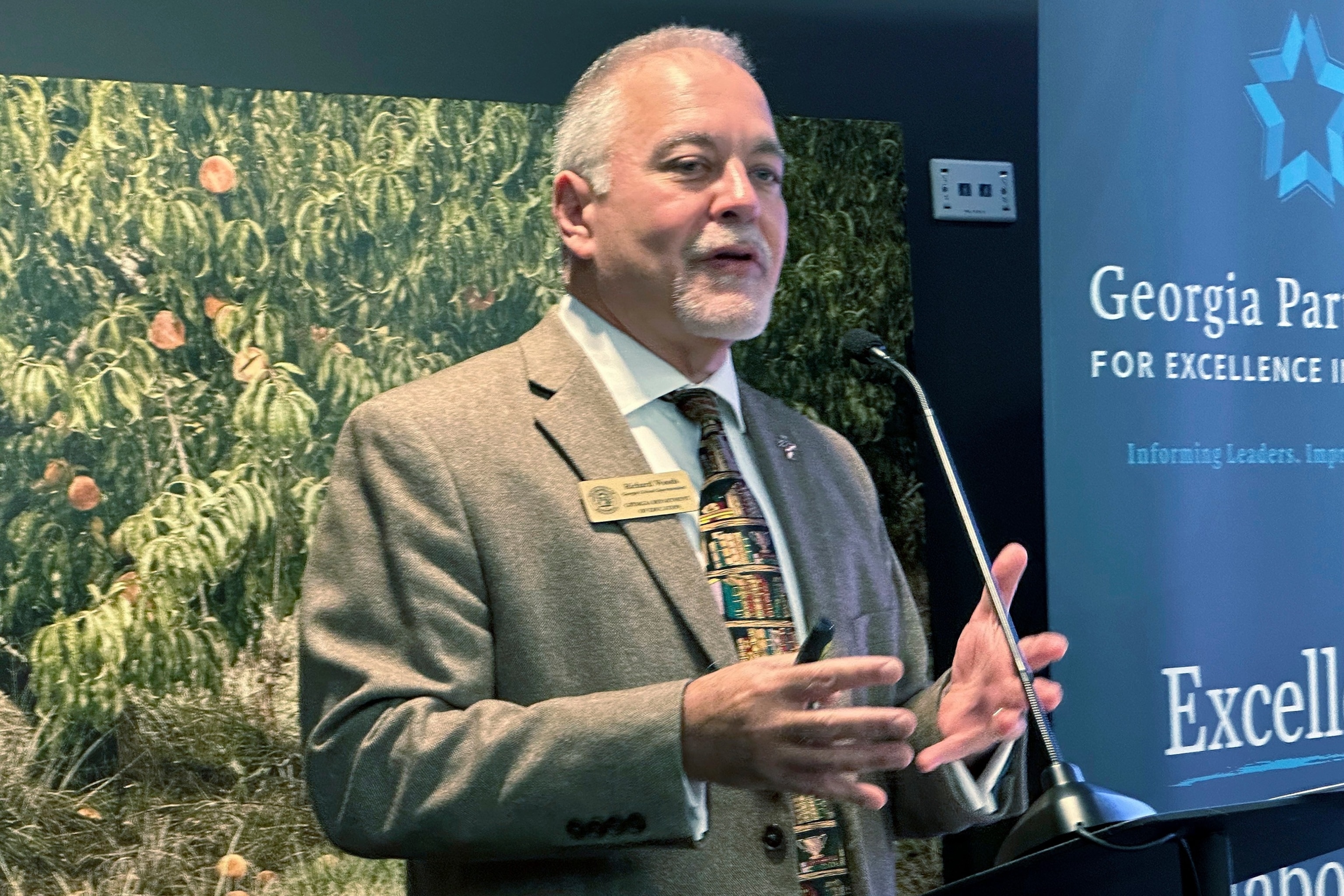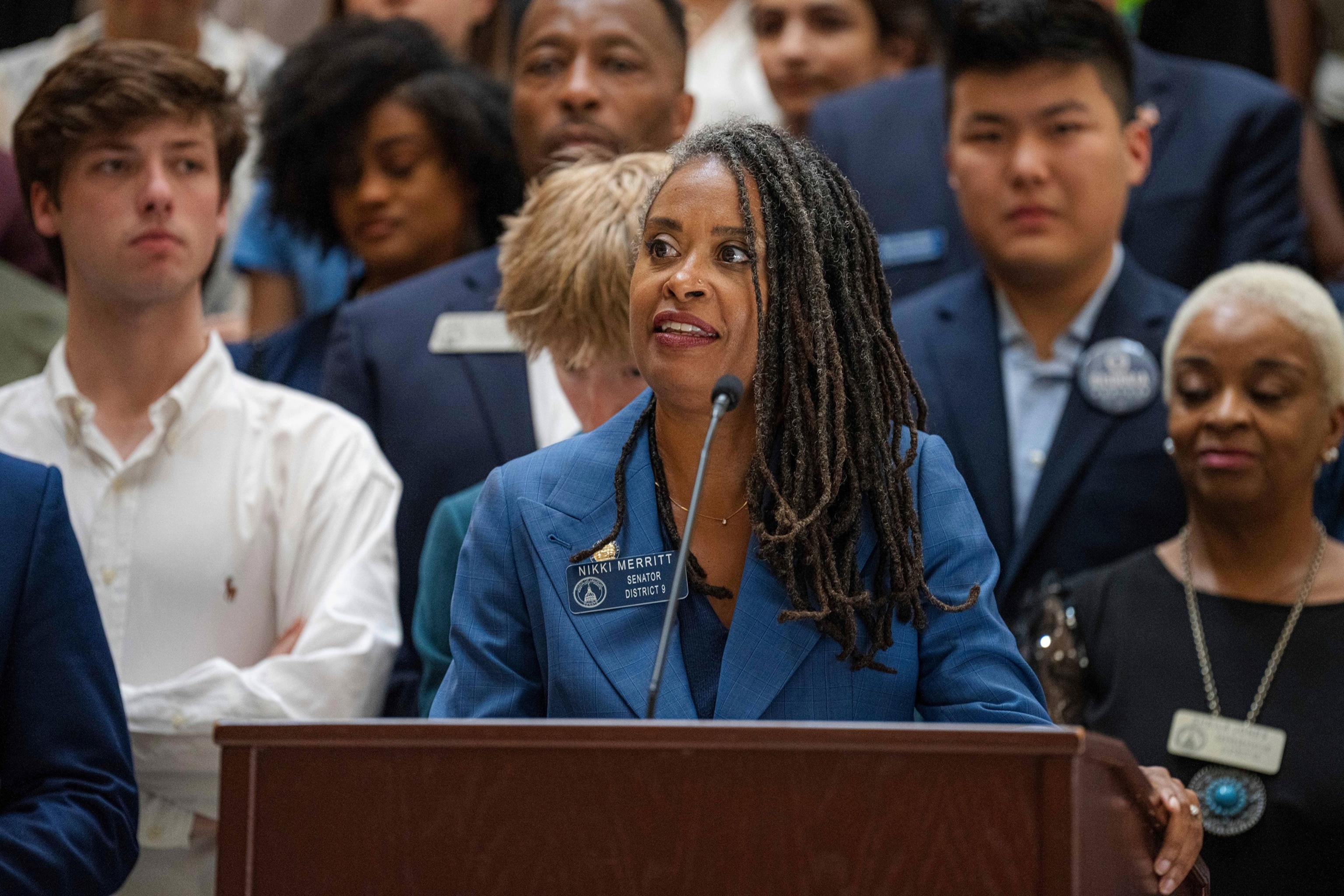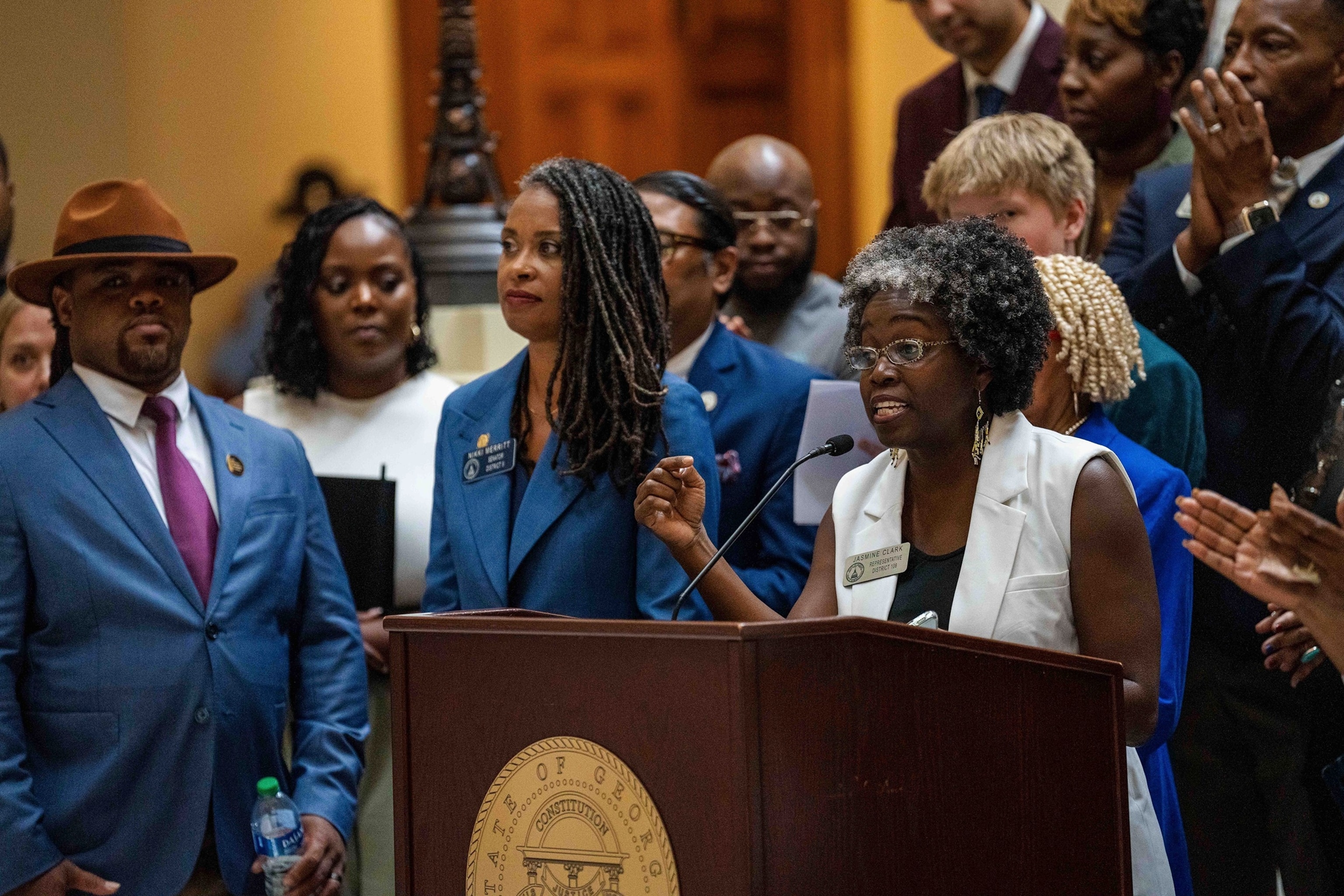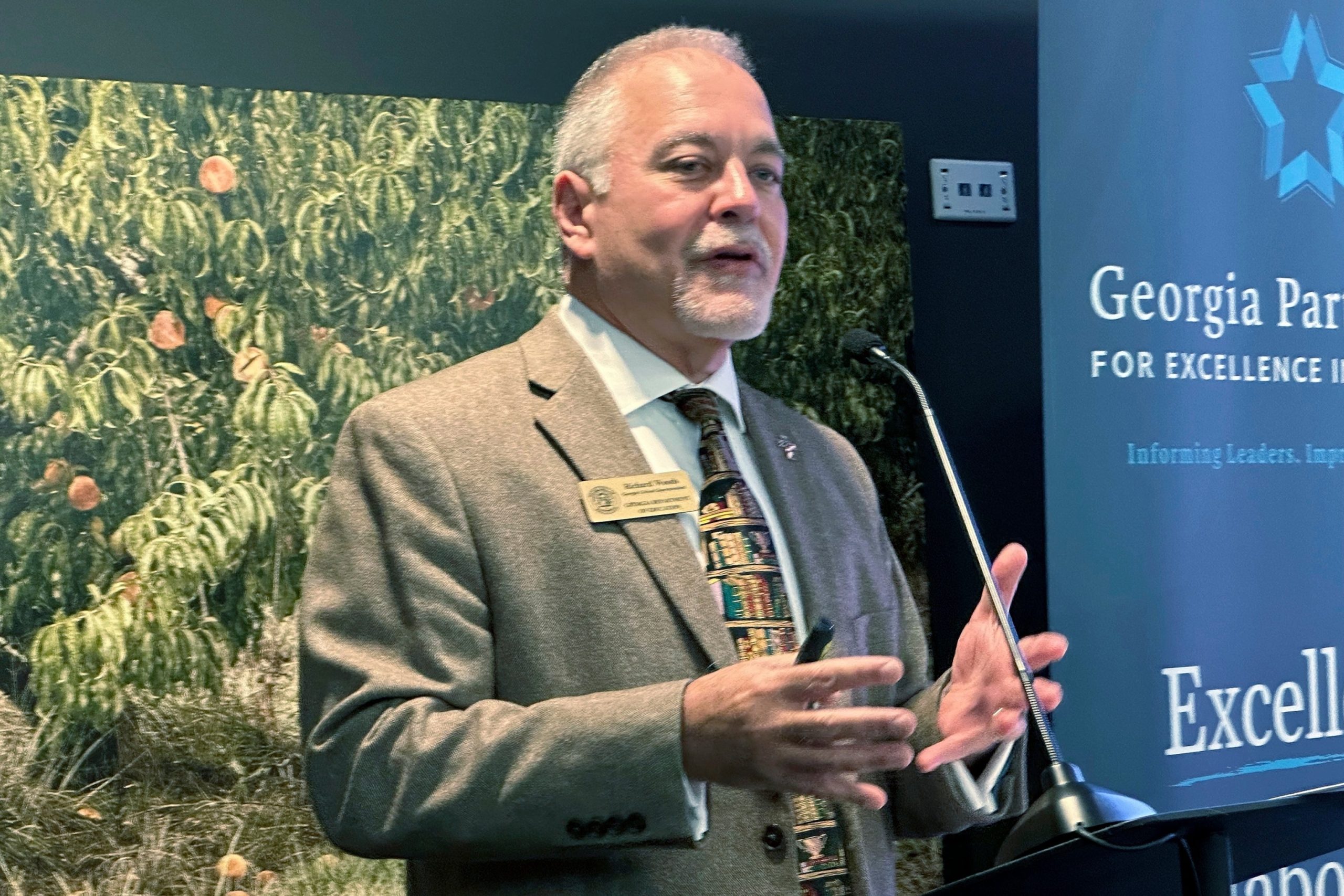Georgia Schools Superintendent Richard Woods announced on Wednesday that the state will restore public funding for Advanced Placement (AP) African American studies to be taught in public schools after seeking “guidance and clarity” from the state’s attorney general regarding whether state law permits its inclusion in the state-approved course catalog.
In a statement posted to the Georgia Department of Education website, the Republican school chief said that “It has “been determined that this law shall not restrict local school systems from adopting any AP, IB, or dual enrollment course,” as long as “these courses are implemented ‘in a professionally and academically appropriate manner and without espousing personal political beliefs,’” as outlined by the law.
“As I have said, I will follow the law. In compliance with this opinion, the AP African American Studies course will be added to the state-funded course catalog effective immediately,” Woods’ statement continued.

Georgia Superintendent of Schools Richard Woods speaks to reporters in Atlanta, GA, Jan. 5, 2024.
Jeff Amy/AP/FILE
In his decision last month to pull public funding for the course, Woods cited Georgia’s >House Bill 1084, Republican-backed legislation that became law in 2002 and that banned teaching “divisive concepts” in public school, including numerous concepts dealing with race and racism, including what is generally described as institutional racism.
But on Wednesday, Woods said that his decision to reverse course is based on a determination by Georgia Attorney General Chris Carr, who said in a letter sent to “the sponsor of [HB 1084]” that “this law shall not restrict local school systems from adopting any AP, IB, or dual enrollment course,” and that “Each such course will be exempted from the provisions of the divisive concepts legislation, so long as these courses are implemented “in a professionally and academically appropriate manner and without espousing personal political beliefs.”
Woods’ statement did not name HB 1084’s sponsor, but the bill was authored by state Rep. Will Wade.
Carr said in that letter, which was obtained by ABC News, that HB 1084 was “not to be construed or applied to somehow prohibit the implementation of advanced placement, international baccalaureate, or dual enrollment coursework.”
“The only limitations placed on such coursework by [HB 1084] are that it is implemented ‘in a professionally and academically appropriate manner and without espousing personal political beliefs.'”
A spokesperson for Carr told ABC News on Wednesday that the letter reflects his view on state funding for the AP African American studies course.
ABC News reached out to Wade’s office for further comment, but the request was not immediately returned.
A representative for the Georgia Senate told ABC News that despite the reversal, Democratic lawmakers from both of the state’s legislative chambers are still expected to hold a previously scheduled hearing on the issue on Thursday.

Georgia state Sen. Nikki Merritt delivers remarks at a joint Senate and House press conference on the State School Superintendent’s decision to block an AP African American Studies course at the Georgia State Capitol in Atlanta, GA, July 24, 2024.
Matthew Pearson/AP
Woods’ July 23 decision to prohibit the teaching of AP African American studies in Georgia public schools was met with weeks of backlash from state Democratic lawmakers, educators and students, who urged the superintendent to reverse his decision.
“From the beginning, we knew that Woods was wrong,” Democratic Sen. Nikki Merritt wrote Wednesday on X. “This is a victory today for our students, teachers, and Black History demonstrating the potential of community involvement.”
Merritt previously criticized Woods’ decision during a July 24 press conference at the Georgia State Capitol, where a group of Democratic lawmakers and advocates called on Woods to restore funding for the AP African American studies course and argued that it has been unfairly targeted.
“This course is the only AP course removed. And we’re left wondering why. I can tell you it’s not about funding,” Merritt said during the event.

Georgia state Rep. Jasmine Clark delivers remarks at a joint Senate and House press conference on the State School Superintendent’s decision to block an AP African American Studies course at the Georgia State Capitol in Atlanta, GA, July 24, 2024.
Matthew Pearson/AP
While the state rejected funding for the AP course, school districts still had the option to offer courses on African American studies as a topic, but Merritt said that was “not good enough.”
“Explain to me why this course is being singled out and is no longer eligible for state funds,” she added.
Woods said in his statement Wednesday that the exemption will require that a disclaimer be added to all AP courses in the Georgia course catalog, which in part says that “Advanced Placement (AP) courses and their instructional frameworks and curriculum are solely owned and endorsed by the College Board. The contents of these courses have not been reviewed or approved by the Georgia Department of Education.”
The disclaimer further advises school districts to “use a process for reviewing, approving, and adopting AP courses and instructional frameworks that engages students, parents, educators, and community stakeholders.”
“Curricula and training should abide by state and local policies, including House Bill 1084 – which requires that the curriculum of exempted AP courses be implemented in a professionally and academically appropriate manner and without espousing personal political beliefs,” the disclaimer concludes.
The inclusion of AP African American studies in public schooling has become a politically charged topic in many states. Florida, South Carolina and Arkansas have also recently pulled public funding for the course.
ABC News’ Mariama Jalloh contributed to this report.
The State of Georgia has announced plans to restore public funding for the Advanced Placement (AP) African American Studies course, a move that has been met with praise from educators and advocates for diversity in education. The decision was made by Georgia’s School Chief, who cited the importance of providing students with a comprehensive and inclusive curriculum that reflects the diverse history and experiences of African Americans.
The AP African American Studies course was first introduced in Georgia in 2019, but funding for the program was cut the following year due to budget constraints. This decision was met with criticism from educators and community members who argued that the course was essential for promoting a more inclusive and accurate representation of African American history in schools.
The restoration of public funding for the AP African American Studies course is a significant step towards addressing the lack of diversity in the curriculum and ensuring that students have access to a more comprehensive education. The course covers a wide range of topics, including African American history, culture, literature, and social issues, providing students with a deeper understanding of the contributions and experiences of African Americans throughout history.
In a statement announcing the decision, Georgia’s School Chief emphasized the importance of providing students with a well-rounded education that reflects the diversity of the state’s population. “It is crucial that our students have access to a curriculum that is inclusive and representative of the rich history and culture of African Americans,” the School Chief said. “By restoring funding for the AP African American Studies course, we are taking an important step towards creating a more equitable and inclusive education system for all students.”
Educators and advocates for diversity in education have welcomed the news, praising the state for recognizing the importance of providing students with a more comprehensive and inclusive curriculum. They believe that the restoration of public funding for the AP African American Studies course will help to promote a more accurate and nuanced understanding of African American history and culture among students.
Moving forward, educators and advocates are hopeful that other states will follow Georgia’s lead in prioritizing diversity and inclusion in their education systems. By providing students with access to courses like AP African American Studies, schools can help to create a more inclusive and equitable learning environment that prepares students to be informed and engaged citizens in an increasingly diverse society.



